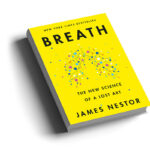Now Reading: Escaping the Trap of Extreme Diets in the Digital Age
-
01
Escaping the Trap of Extreme Diets in the Digital Age
- Home
- Health & Wellbeing
- Escaping the Trap of Extreme Diets in the Digital Age
Escaping the Trap of Extreme Diets in the Digital Age
BooshkaHealth & Wellbeing, Food1 year ago528 Views

Escaping the Trap of Extreme Diets in the Digital Age
In today’s digital era, we are constantly bombarded with information from every angle. Websites, social media, TV advertisements, and even podcasts provide a never-ending stream of content. This inundation has led to the rapid spread of diet fads and trends, often fueled by influencers and marketers who capitalize on vulnerabilities.
Feeling Vulnerable and the Trap of Inadequacy
When we’re feeling vulnerable, it’s easy to become disconnected from our emotions. Instead of accepting and processing how we feel, we might find ourselves resisting these feelings, which can create a sense of inadequacy. This inner conflict often paves the way for the lure of extreme dieting as a way to regain control or feel “better” about ourselves.
Extreme dieting can feel like a solution to perceived shortcomings, but it often deepens the problem. Several patterns emerge when we fall into this trap:
-
Overanalyzing Food Choices: Every meal becomes a mental battlefield as we scrutinize what, how much, and when we eat. This obsessive focus can drain energy and create a negative relationship with food.
-
Physical and Mental Strain: Extreme dieting is not just a physical challenge; it becomes a mental one as well. The constant effort to stick to rigid rules can lead to fatigue, irritability, and even feelings of failure if perfection isn’t achieved.
-
Isolation: The pressure to adhere to strict dietary rules can lead to avoiding social situations involving food, further amplifying feelings of vulnerability and inadequacy.
Navigating Vulnerability with Acceptance
To break free from this cycle, it’s essential to embrace vulnerability with compassion and acceptance. Here are some steps to shift towards a healthier mindset:
-
Acknowledge Your Emotions: Recognize and name the feelings you’re experiencing without judgment. This can help you understand your triggers and prevent emotional responses from dictating your actions.
-
Practice Self-Compassion: Treat yourself with the same kindness you would offer a close friend. Understand that feeling vulnerable is a natural part of being human and doesn’t make you inadequate.
-
Focus on Holistic Health: Instead of fixating on dieting, prioritize balanced nutrition, regular movement, and mental well-being. Aim for sustainable habits that support long-term health.
-
Limit Exposure to Diet Culture: Be mindful of the media you consume. Unfollow accounts or avoid content that makes you feel pressured or inadequate. Instead, seek out resources that promote body positivity and health at every size.
Moving Forward
Understanding the connection between vulnerability and extreme dieting is a powerful step toward self-awareness and self-care. By recognizing how feelings of inadequacy can influence our choices, we can begin to foster a more accepting and compassionate relationship with ourselves. Remember, true health comes from nurturing your mind, body, and soul—not from chasing unrealistic standards.
The Allure of Extreme Diets
When you’re not feeling your best, the promise of a quick fix can be enticing. Diets like keto, carnivore, vegan, and vegetarian often attract followers with claims of life-changing results. However, these extreme approaches can sometimes do more harm than good, leaving you feeling depleted, malnourished, and disconnected from your body’s natural signals.
This isn’t to say that eating healthy or following structured eating patterns is inherently wrong. In fact, for some people, a temporary shift to a low-carb or unprocessed diet can bring significant benefits, especially if they’re dealing with inflammation, bloating, or other digestive issues. These approaches can act as a reset, allowing your body to recalibrate and heal. However, the key lies in understanding that these methods are tools, not lifelong prescriptions for everyone.
The human body is incredibly adaptable, and it thrives on variety. Overly restrictive diets can limit essential nutrients, disrupt hormonal balance, and foster a mindset that prioritizes rigid rules over intuitive eating. For instance, keto diets may lead to rapid weight loss and reduced inflammation initially, but prolonged carbohydrate restriction can affect thyroid function, energy levels, and mood. Similarly, vegan diets can be nutrient-dense and sustainable for some individuals, but without proper planning, deficiencies in B12, iron, and omega-3 fatty acids may arise.
Extreme diets also risk severing the connection with your body’s hunger and fullness cues. When you’re following a rigid plan, it’s easy to ignore what your body is telling you it needs in favor of sticking to the rules. This disconnection can lead to cycles of overeating, bingeing, or feeling disappointed when you stray from the plan.
The best long-term approach to health and wellness is a balanced, flexible mindset. Instead of labeling foods as “good” or “bad,” consider how they make you feel and how they support your overall goals. A sustainable diet includes a variety of nutrient-dense whole foods—vegetables, fruits, lean proteins, healthy fats, and complex carbohydrates—along with room for occasional indulgences. This balance helps maintain physical health, supports mental well-being, and fosters a positive relationship with food.
If you’re considering a major dietary change, it’s essential to do so mindfully and with proper guidance. Consulting a healthcare professional or nutritionist can help you tailor an approach that meets your specific needs and ensures you’re not missing out on key nutrients. Remember, your body is unique, and what works for someone else might not work for you.
In conclusion, while diets like keto, carnivore, vegan, or vegetarian may offer short-term benefits and can be powerful tools in certain situations, they should be approached with caution and balance. Embracing variety, listening to your body, and seeking professional guidance can help you achieve long-term health and vitality without falling into the pitfalls of extreme dietary practices.
The Pitfalls of a Strict Diet
Extreme diets often lead to rigid mindsets, where food becomes a source of fear rather than nourishment. For example:
-
Keto and Carnivore Diets: While these may help some individuals temporarily, they can deprive your body of fiber and essential carbohydrates, leading to imbalances and long-term health issues.
-
Vegan and Vegetarian Diets: While rich in plant-based nutrients, these can sometimes lack essential proteins and fats if not carefully planned.
The key issue is that these diets often focus on restriction rather than balance, creating a cycle of over-analysis and stress about food choices.
Finding Balance and Acceptance
Instead of following rigid dietary rules, it’s essential to cultivate a balanced approach to eating. Here are some practical steps:
1. Focus on Whole, Fresh Foods
Whenever possible, choose organic fruits, vegetables, salads, grass-fed meats, and sustainable wild caught fish. These foods are less likely to contain harmful chemicals, additives, and preservatives that can burden your body.
2. Start the Day Right
A balanced breakfast can set the tone for the day.
For example:
-
Dice an onion and sauté it with three eggs in a tablespoon of grass-fed ghee. This high-protein, high-fat meal stabilizes energy levels without the need for excessive carbohydrates.
3. Listen to Your Body
Allow yourself to enjoy a variety of foods. Craving a fresh mango or some honey? Trust your intuition and enjoy it in moderation. Your body often knows what it needs better than any diet trend.
4. Balance Carbs, Proteins, and Fats
Combine proteins and healthy fats with carbohydrates to avoid blood sugar spikes and energy crashes. For example, pair rice (preferably cooled and reheated for slower energy release) with a portion of protein and vegetables.
5. Avoid Late-Night Eating
Eating dinner early gives your digestive system a chance to rest, leading to better sleep and more energy the next day.
Reconnecting with Intuition
Extreme diets often disconnect us from our natural instincts. Instead of following rigid rules, imagine giving advice to your 10-year-old self. Would you tell them to fear food or embrace a variety of colorful, nutrient-dense meals?
Include Variety for Well-being
-
Colorful Choices: Incorporate foods like purple grapes, orange carrots, and red watermelon to ensure you’re getting a wide range of nutrients.
-
Seasonal Adjustments: Our bodies change with the seasons, so adapt your diet to include seasonal produce and fresh ingredients.
The Takeaway: Simplicity and Sustainability
Your diet should never feel like a burden. When it’s hard, it’s often because your body is missing something essential. Keep it simple:
-
Fresh fruit, vegetables, and protein
-
Healthy fats like avocado and coconut oil
-
Clean, fresh water
If something isn’t working for you, take a break and reintroduce variety. Health and well-being are about finding what works for you, not adhering to someone else’s strict rules.
- balanced living
- body transformation
- carb-free living
- carnivore diet
- carnivore lifestyle
- carnivore recipes
- diet culture
- diet fads
- diet myths
- dietary balance
- dietary health
- extreme diet risks
- extreme dieting
- extreme weight loss
- fat loss strategies
- fitness trends
- food as medicine
- Gut Health
- health and fitness
- health optimization
- health-conscious living
- healthy eating
- healthy fats
- healthy habits
- high-protein diet
- holistic health
- keto benefits
- keto diet
- keto recipes
- ketogenic lifestyle
- low-carb diet
- low-carb living
- metabolic health
- mindful eating
- nutrition tips
- nutritional ketosis
- sustainable diets
- weight loss tips
- wellbeing tips
- wellness journey






























